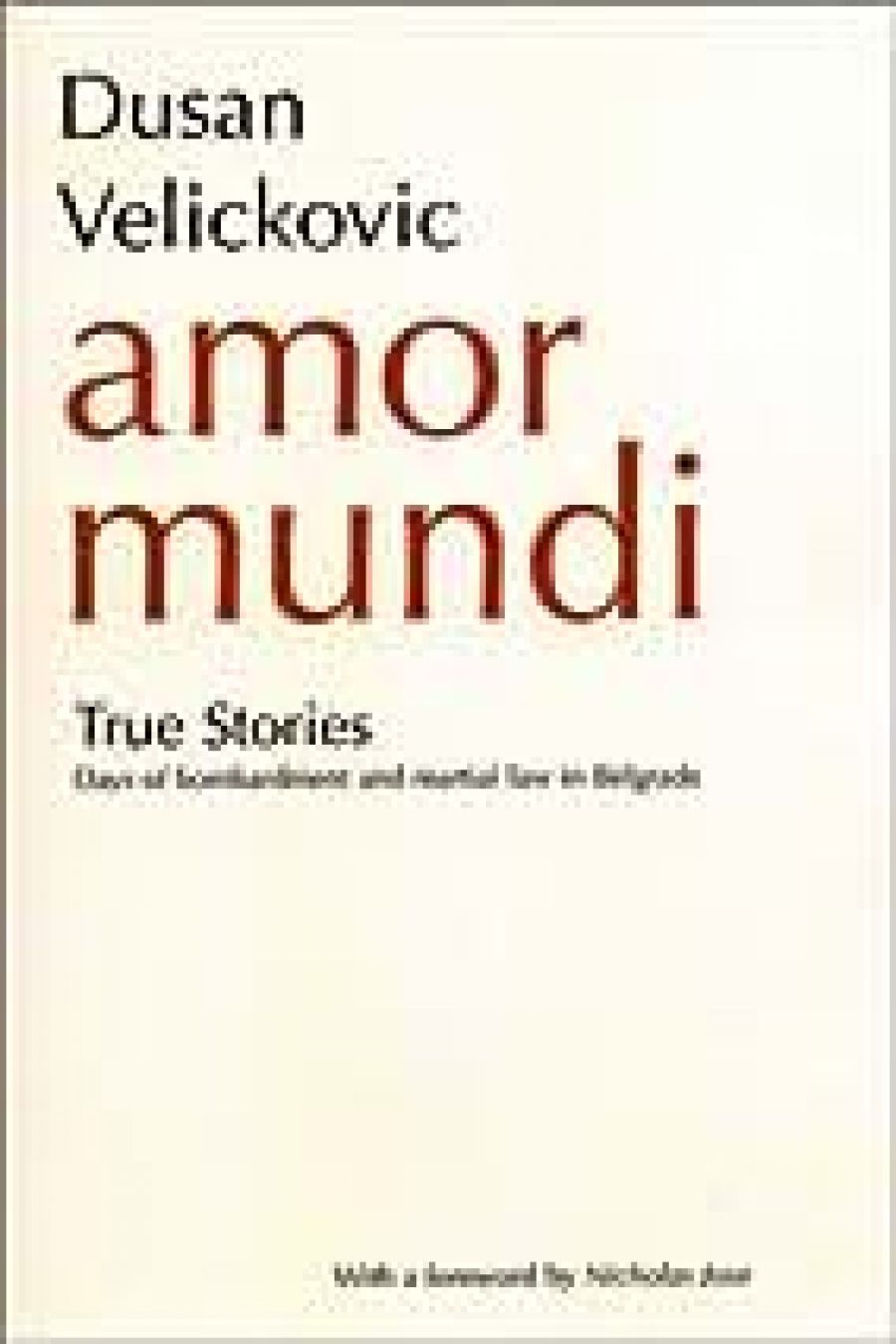
- Free Article: No
- Contents Category: Biography
- Review Article: Yes
- Article Title: Love One Another or Die
- Online Only: No
- Custom Highlight Text:
This excellently produced little paperback from a new Australian publisher, Common Ground Publishing, comes with a story behind it. Dusan Velickovic may be remembered by some Australians; he came to this country for several months back in the mid-1980s under a Literature Board Familiarisation scheme, and on his return to Belgrade he did much to publicise Australian writing. Frank Moorhouse, B. Wongar, Robert Drewe and myself were published in translation in the then Yugoslavia as a result of his promotion, and there were probably others. Then, in the late 1990s, silence fell.
- Book 1 Title: Amor Mundi
- Book 1 Subtitle: True stories – Days of bombardment and martial law in Belgrade
- Book 1 Biblio: Common Ground Publishing, $18.80 pb, 88 pp
I cannot claim to be dispassionate about reviewing it, but I can claim, honestly, to have read it initially with a reviewer’s dispassion, and to have been rapidly excited by it and by the effective utilisation of language, image and incident to pinpoint dramatic moments in their often undramatic circumstances. How to write on a big theme like the bombing of a city? How to place yourself inside the daily life experience, and yet communicate to a reader halfway across the world (and in a different language) the slow erosion of long-held values and the growing realisation that in order to survive one has to do the almost unimaginable thing: resist hating the world, and find your own way to love it, in its immediacy and its betrayal and its idiocy?
Velickovic was living with his family, and the book records their small reactions to events as they unfurled, big and large, momentous and trivial. It is a book about courage, too, and a sense of humour as well as a sense of outrage.
Belgrade has been destroyed twenty-seven times since its founding, so there is a quiet recognition as well as a great patience (at least, to my eyes) in Velickovic’s endurance of the latest onslaught. But what is important is that this is a beautifully modulated and cunningly comic as well as an acutely observant chronicle, writ small but with a postmodern knowingness.
There is an excellent foreword from Nicholas Jose, which points out Velickovic’s long association with International PEN, a worldwide association of writers actively concerned with the rights and welfare of authors in embattled countries. Velickovic’s account of his attendance at a PEN Conference in Slovenia is a masterpiece of compression and irony. When he drove back to Belgrade all the traffic was coming from that city; he was the only one going back to it:
In the Misze motel on the freeway near Ketchkemet, 100 kilometres from Budapest, the receptionist recognises me from my previous stop. He asks why I am returning to Belgrade, where bombs are falling. I felt that this was the moment when I could say something very patriotic. Much later I did formulate a reply that I ought to have given him: ‘I am probably not very necessary or useful to my country, but it is necessary and useful to me.’ Instead I answered, ‘I live there.’ It is not very easy to be a true patriot in Serbia today. You must know how to be one. You have to be rather radical.


Comments powered by CComment